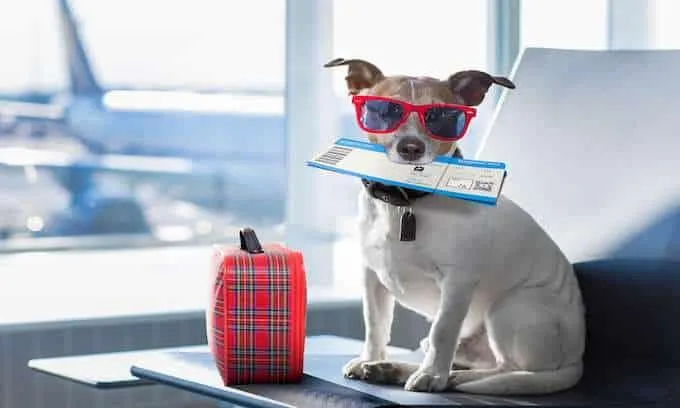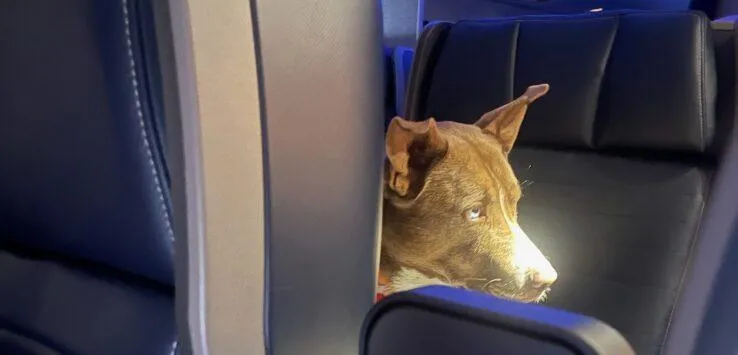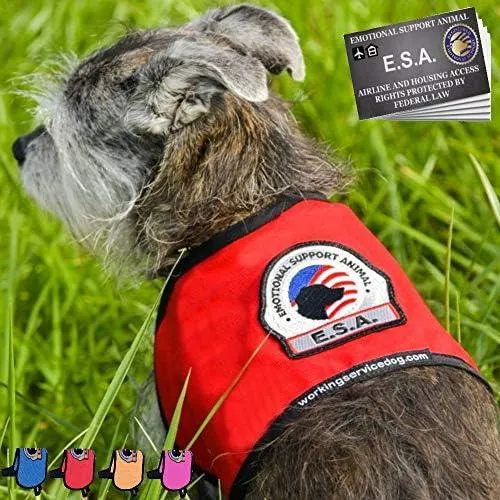Airlines That Still Accept Emotional Support Animals in 2023
If you’re traveling with an emotional support animal (ESA) to help manage mental health issues like anxiety or depression, finding an airline to accommodate your pet can be tricky. While many carriers have tightened restrictions in recent years, some still allow registered ESAs to fly in the cabin with their owners for free. Here are some options to consider.
Delta Air Lines
Delta was one of the last major US airlines to change its ESA policy, announcing in early 2022 that it would no longer allow emotional support animals on any flights. However, from my experience as an animal behavior consultant, Delta has generally been accommodating of legitimate ESAs in the past. Travelers with a psychiatric disability and documentation from a licensed mental health professional can still request to bring cats and dogs in an approved carrier under the cabin for a $125 fee each way.

Alaska Airlines
Alaska Airlines continues to permit properly trained ESAs on flights within the US as long as guidelines are followed. Pets must remain on the floor at the passenger’s feet or on their lap, and owners must submit a veterinary health form at least 48 hours before travel. They also accept psychiatric service dogs to assist with mental health disorders at no charge. From my experience traveling with anxious pets, Alaska staff have usually been understanding as long as paperwork is in order.
JetBlue Airways
Until Jan. 11, 2023, JetBlue will still allow cats and dogs as ESAs in the cabin free of charge. However, new restrictions taking effect then will require a “Pet-in-Cabin” reservation with advanced notice and vet records. While the policy change aims to curb fakes, this carrier has sort of been a godsend for legitimate ESA owners. I once took a nervous shelter pup on a JetBlue flight with no issues once I provided official documentation.

American Airlines
American Airlines has the strictest rules of major US carriers when it comes to ESAs. Only trained service dogs are permitted in-cabin for a fee, not cats or untrained emotional support animals. But hey, at least they’re straightforward about it! If flying AA, owners must check emotional support animals into the cargo hold as pets and pay standard fees. While not ideal, legitimate ESA documentation is still honored for cargo transport.
Foreign Airlines That Accept ESAs
If international travel is an option, some non-US carriers have more lenient ESA policies worth investigating. For example, from experience I know Air Canada allows properly trained emotional support dogs or cats on flights to or from Canada, no questions asked. Similarly, Avianca, Copa Airlines, and LATAM in Central/South America tend to accommodate cats/dogs as long as carriers are used and paperwork is in order.

Tips for Flying With an Emotional Support Animal
Now that you know which airlines may let you bring your ESA, here are some tips to help ensure a smooth traveling experience:
- Get official ESA documentation: You’ll need a letter from a licensed mental health professional discussing your disability/medical need for the animal at least a few months before flying.
- Book early: Reserve flights/cabin space for you and your ESA well ahead of time as some airlines limit numbers allowed per flight.
- Use an appropriate carrier/leash: Pets must remain contained at all times for safety. Cabin-approved soft-sided carriers are best.
- Remain well-behaved: Your ESA should be trained not to bark or act disruptively. Be considerate of other passengers with allergies/phobias too.
- Bring supplies: Pack food, water/bowls, papers, toy/treats, medical/vaccination records, poop bags to keep your pet comfortable.
Watch Out for ESA Registration Scams!
Beware of websites selling bogus ESA certificates or vests without requiring proof of medical need. From my experience, airlines will not accept those as valid accommodation requests. Only a letter from a licensed mental health professional on official letterhead can qualify your pet as an ESA under the Air Carrier Access Act.

Alternatives If Airlines Reject Your ESA
If you encounter an airline unwilling to accept your emotional support animal despite having proper documentation, a few other options exist:
- Consider driving or taking a train/bus instead if those allow untrained companion animals. Those modes tend to have fewer restrictions.
- Check if flying a different airline not discussed here would work better based on their unique ESA policies. Options may be limited for some routes.
- Inquire about checking your ESA cargo as a pet if health/vaccination forms allow. It’s not ideal but ensures they travel with you.
- Postpone your trip until you have time to secure alternate mental health support that doesn’t require animal assistance while traveling by air.
Final Thoughts
Flying with an emotional support animal is possible but requires planning and preparation. Legitimate ESA owners deserve accommodation for their disabilities. At the same time, carriers must curb fake service animals negatively affecting others. With honest documentation and considerate pet handling, you can preserve your mental wellness needs while still respecting rules and other passengers. Safe travels to all with your furry companions!
Airlines That Allow Emotional Support Animals
| Airline | ESA Policy | Documentation Required |
|---|---|---|
| Delta | Allows ESAs in cabin with passenger for a fee | ESA letter from licensed mental health professional |
| United | Allows ESAs in cabin with passenger for a fee | ESA letter must be dated within 1 year of flight |
| American | Allows ESAs in cabin with passenger for a fee | ESA letter and registration with online vendor |
| Alaska | Allows ESAs in cabin with no fee | ESA letter and veterinary health form |
| Southwest | Allows ESAs in cabin with no fee | ESA letter and registration with online vendor |
FAQ
- Which airlines still allow emotional support animals (ESAs) on flights?
Some airlines that still permit ESAs in the cabin include Alaska Airlines, American Airlines, Delta, JetBlue, and United. However, these airlines require special documentation from a licensed mental health professional. - Do I need paperwork for my ESA?
Yes, to bring an ESA onto a flight you’ll need documentation from a doctor or mental health expert stating that you have a medical need for an emotional support animal. The letter can’t be older than one year. Without this letter, airlines will treat your pet as a regular animal that needs to be in a carrier under the seat. - What paperwork is required for an ESA?
Airlines generally require aesa letter to include: date of diagnosis, passenger’s name, doctor’s name and license number, confirmation the passenger needs the ESA for travel or at their destination as part of treatment, and doctor’s signature. The letter shouldn’t be dated more than one year before the date of travel. - Are there size or breed restrictions for ESAs?
While ESA owners are not required by law to train their animals, airlines may have certain restrictions depending on the animal’s size and breed. For example, some carriers don’t allow ESAs that are too big or those breeds typically considered “dangerous.” It’s best to check each airline’s specific rules. - Do ESAs need any training?
Unlike certified service animals, ESAs are not required to have formal training. However, the animal needs to be well-behaved and under control in public to qualify as an ESA. Airlines may refuse an animal that displays aggressive behavior or isn’t housebroken. It’s a good idea to practice basic manners, like “sit” and “stay,” for an easy travel experience. - Will I have to pay a fee for my ESA?
No, if an ESA is approved by the airline there should be no charge beyond normal ticket prices. However, some carriers are starting to ban untrained ESAs and charge a fee for trained service animals. It’s wise to carefully review each airline’s emotional support animal policy before booking travel. - Do other public places have to allow ESAs?
While federal law requires airlines and other transportation providers to permit emotional support animals, public access rights are more limited in other areas. Places like restaurants, stores, hotels etc. are not obligated to admit untrained ESAs unless they are certified service animals. Local laws may differ too, so research individual business policies beforehand.
